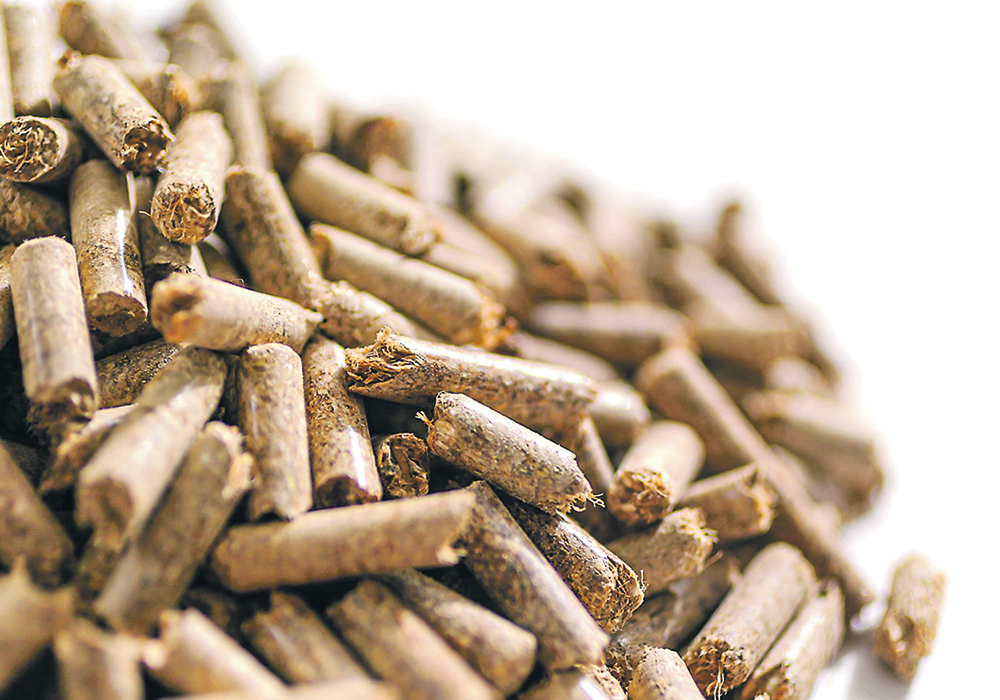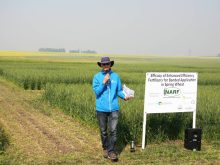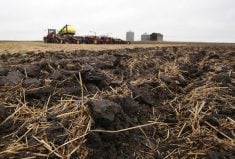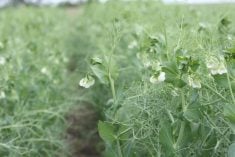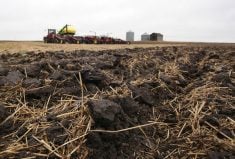WINNIPEG — Entrepreneurs get involved in a new business for a variety of reasons — market need or even an opportunity to change the world.
In Mark Cooper’s case, he was tired of listening to his friend, Trevor Thomas, go on and on about flax straw. Thomas and Cooper’s wives are best friends and whenever the couples got together, Thomas wanted to discuss his idea for a new company.
“We spent a lot of time talking about it (the idea),” said Cooper, who is now chief executive of Regina-based Prairie Clean Energy.
Read Also

Crop quality looks good this year across Prairies
Crop quality looks real good this year, with the exception of durum.
“Eventually, to humour him and to get him to go away, I agreed to write up the business plan.”
Thomas’ idea was to convert flax straw into pellets and sell them to industrial or commercial clients who would use the biomass to produce energy or heat.
Cooper was initially skeptical.
But once he wrote the business plan, it changed his mind. He realized Thomas was right and agreed to become the chief executive of Prairie Clean Energy, founded in 2020.
Using flax straw to produce clean energy was an enticing opportunity, he said.
“Taking all of that waste … and pelletize it for energy purposes and deliver those solutions around the world … it’s something we take very seriously and are very proud of,” said Cooper, who was chief executive of the Saskatchewan Construction Association before joining Prairie Clean Energy.
Cooper and Thomas, founder and chief relationship officer, are now raising capital to complete a flax processing plant in Regina.
They have an agreement with FCC to provide 50 percent of the money needed to buy machinery and get the plant operational.
But they decided to use crowdfunding, through a group called FrontFundr, to raise another $1.5 million in equity.
“Through the FrontFundr campaign, shares in PCE are being sold for $5 with a minimum investment of $500,” says a Prairie Clean Energy news release from June 11.
“Accredited investors in Saskatchewan can also tap into the 45 percent Saskatchewan Technology Startup Incentive (STSI) tax credit with a minimum $15,000 investment.”
Crowdfunding is an excellent way to tell Prairie Clean Energy’s story to a larger audience, Thomas said.
So far, the decision has been a success. As of June 12, it had reached 70 percent of the equity target.
If all goes according to plan, Cooper expects the company to start processing flax at its Regina plant in October.
It will purchase flax straw from farmers within 200 kilometres of Regina and expects to buy about 50,000 tonnes in 2024.
It has been processing flax at a toll plant in Gilbert Plains, Man., for the past two years. The new facility in Regina will have a larger capacity of about 150,000 tonnes per year.
The main product will be flax pellets made from shives.
“We hold two patents, currently, and another one filing right now,” Cooper said. “It’s new application of existing technology (that) we developed over the course of about two years … to deliver the results we needed, which is at commercial scale (to) pelletize flax straw.”
Prairie Clean Energy plans to sell the biomass product to commercial, industrial and residential customers who will use the pellets as fuel.
“Our in-depth third-party testing shows our flax straw pellets can lower greenhouse gas emissions up to 90 percent for heat and power generation,” said PCE chief product and supply chain development officer Mahmood Ebadian.
It already has interest from potential customers overseas, in Japan and the U.K., who want to buy large volumes, Cooper said.
In addition to commercial markets, the company is selling flax pellets into the equine market.
“Horse farmers, the Amish … we’re selling it to Pennsylvania and Indiana to Amish farmers, who are using it for horse bedding,” Cooper said.
At its Regina plant, Prairie Clean Energy will also separate fibre from flax straw and plans to sell it into the paper market and to companies who use flax fibre in composite materials.
Once its new facility is up and running, the business has big ambitions for flax pellets and other flax straw products.
“We anticipate as much as seven facilities built across the Prairies over the next 10 years,” Cooper said. “There’s no point in settling for second place.”


